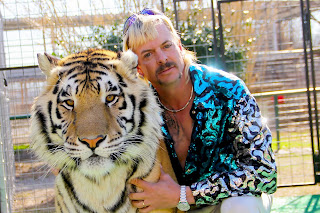Horror is a form of self-inflicted intimacy, alike taking a hot bath, it creates intimacy and stimulation between you and your senses.

October 18th, 2002: “The Ring” is released. I am 10. Although I only witness the film piecemeal through ads, a parody sequence in Scary Movie III, and through a recounting of the film by my dad on a long hike, the horror of the film settles deep within me.
The idea of “The Ring”’s antagonist Samara hiding in my closet tortures me for months. During the day I am beset by childhood social anxiety. At night I could not rest my ear against the pillow without thinking my heartbeat was, somehow, Samara.
I had no hope but to wait. Day after day I would attend long lectures by struggling teachers, and night after night I had no reliable peace. I didn’t get out of the school system for years but my escape from Samara happened sooner.
My family kept a library of Stephen King novels, and despite my childhood knowledge that Horror could destroy my nightly peace for weeks, I took those King books for a spin. Surprisingly, they didn’t terrorize me like “The Ring” did.
I found myself enjoying the often erotic weirdness and terror the King books spewed out. I got acclimated to whatever Samara struck me with; the nightmares slacked off, though I was still cautious that watching a horror movie risked hours and hours of panic...
Sometime around 2015: I attend a book tour for The Furry Trap at The Cyberpunk Apocalypse, an artist-owned residence and performance space. The author of The Furry Trap, Josh Simmons, is there. I opened this particular graphic short-story collection and was appalled. Grody Not-Safe-For-Life Alt-Comix were something I was familiar with but I had only to read a few panels from The Furry Trap’s “Cockbone” story before I was once again struck with the knowledge that the media in front of me would give me nightmares. I hurriedly stopped reading and left the event.
A similar thing happened when I looked into The 120 Days of Sodom a few years back. In the main public library’s stacks, I flipped through the original translation of 120 Days, read a brief paragraph about feeding a young girl a special diet for the purposes of coprophagia, and I put the book down. I think I can remember consciously repressing what I had just read.
Naked Lunch may have done it, or maybe it was one of my friends. In my late twenties (2016+) I began to actively pour through stories of the worst horrors. Last Podcast on the Left, “Last House on the Left”, “Salò, or the 120 Days of Sodom” the movie by Pier Paolo Pasolini, and then The 120 Days Of Sodom by the Marquis De Sade, newly translated and released by Penguin, convinced me fully of the virtues of this kind of thing. John Waters too, I guess. (AND many others -ed)
I began to feel curiously at peace with the shocking themes these films and texts presented. Something about these stories would relieve some great pressure and satisfy some curiosity. Sade’s 120 Days of Sodom in particular got me over several intense fears, of coprophagia, one of them.
It’s after all that, in 2021, I returned to Josh Simmons’s The Furry Trap, and can now say I am compelled, to the point where I can’t stop reading this text every time I start. Some great emotional traumas wrecked on me seemed soothed by the demons therein. Is it sympathy, or what?
WHY EXPLORE THE ID?
A hot bath may be tested with a toe, and we discover whether the water is too hot. Responding to pleasant sensation, we might stick the whole foot, and next, the whole body.
The calming effect of horror is a pleasant sensation that I don’t understand, though I have theories and pop-psychology. It feels as if some self-knowledge is being gained, like the simultaneous testing, and relaxation, in a hot bath. It may be just the nerves, stimulated but safely recalibrating and responding, I am alive, I am alive, I am okay.
There is also the tale of Saint Augustine’s curiosity to consider. One of my professors taught this story to me during a lesson on “the abject”. The abject is whatever’s expelled from the body, taboo’d by society, and so on. Literal shit and watching shit being pushed around qualifies as “the abject”; so too gore, horrid sex stuff, and traumas.
We are more compelled by “the abject” than we may like to admit. St Augustine, my professor taught me, was walking along one day and when he saw, by the side of the road, the corpse of a plague victim.
Feeling the curiousity inside himself, St. Augustine resisted the urge to look at this corpse. However, he noticed his curiousity rising, to the point where he could not resist. “Look then, damn you!”* were his words as he gave his eyes the sight they desired.
The whirling Id inside of us desires information on the forbidden subjects, perhaps to better sort and munch the many horrific fantasies that flit thru our consciousnesses. Am I assauged by the pages and pages of coprophagia in 120 Days? Something happens, and I don’t really know what, but some “assuaging” must occur, because I feel happier and more self-content, often, after reading such a work.
It may just be pride in readership. Facing up to fears. Anyway, The Furry Trap compells me and I think contains a sensitivity the author has been noted to have. Here’s a quote from an interview with Simmons:
“Simmons has an idiosyncratic approach to horror: on the one hand he often employs a take-no-prisoners harshness, on the other he's slyly, darkly funny, and intersperses many of his stories with moments of beauty and even sensitivity (no seriously, check out his Eisner-nominated ‘Seaside Home’ and tell me it doesn't break your heart a little bit).”
There is some capacity for the shock-abject to induce intimacy, like the intimacy that the Marquis De Sade conjured up in jail, the comfort of the interior zone of his mind. The presence of the Id in that interior zone, wild and crazy, can be comforting to a reader like me, who must, as well, live with their own mInD.
This is what can Explain, if we need to Explain, The Furry Trap’s opening story. A thrumming adolescent’s assault fantasy/nightmare. Horror of sufficent strength can speak to our pasts, the scar tissue of a mind burrowing into itself, raised in recongition to the digestion of something similar.










